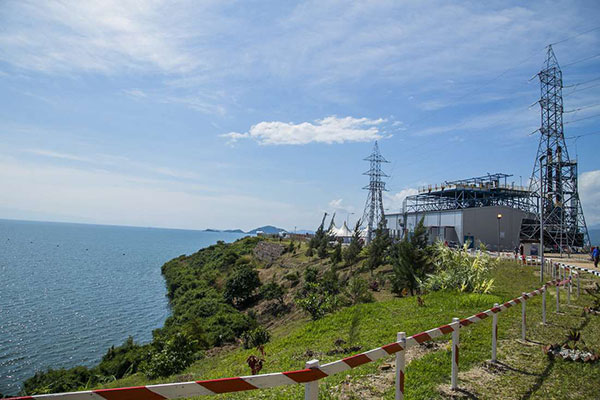Pic: The KivuWatt’s methane gas power production plant on Lake Kivu in Rwanda (NMG).
The country is cited among those with expensive and unstable power. The Senate Committee on Economic Development and Finance found that work on some power substations had stalled including Shango-Birembo for the Rwanda-Uganda link, Rubavu-Bwishyura and Kibuye for Rwanda-Democratic Republic of Congo.
Rwanda’s total demand currently stands at 125MW, a five per cent increase from last year.
Kigali was betting on clean-cheaper power importation from Uganda, Kenya and Ethiopia to increase its generation capacity for domestic consumption and exports.
Rwanda’s Senate is concerned about stalled projects meant to connect the country to East Africa’s power pool, and meet the rising energy demand.
The Senate Committee on Economic Development and Finance found that work on some power substations had stalled including Shango-Birembo for the Rwanda-Uganda link, Rubavu-Bwishyura and Kibuye for Rwanda-Democratic Republic of Congo.
“Many projects have been abandoned, some have stalled,” said Perrine Mukankusi.
The senator asked the Ministry of Infrastructure to step in and save the country from losing the money invested, and fasttrack the projects to address the country’s increasing power demand.
Rwanda’s total demand currently stands at 125MW, a five per cent increase from last year.
The senators also found that work on the Rwanda-Burundi substations had not been commissioned.
Power importation
Senator Everiste Bizimana expressed doubt that the country would manage to increase the current generation capacity from 208.3MW to 563MW.
Kigali was betting on clean-cheaper power importation from Uganda, Kenya and Ethiopia to increase its generation capacity for domestic consumption and exports.The country is cited among those with expensive and unstable power which compromised the competitiveness of the country in doing business, as per the 2018 World Bank Doing Business report.Testimonies in the Senate report show that industries are operating below capacity and counting losses due to power shortages.“We wish to run the two factories we have here at a go, which consume six megawatts, but we receive only three megawatts, which normally goes down to two megawatts by evening,” Abhilash Shrivastava, a manager at the Imana steel factory is quoted.
